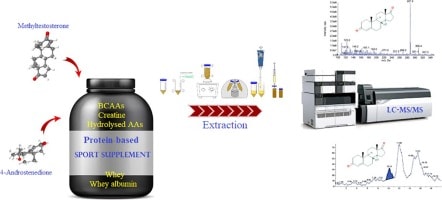Note From Will: Folks, I didn’t write this article. Dr. Lopez did. It’s an excellent review of the recent negative findings on fish oil that’s creating confusion for people. I have gotten many emails asking to clarify the issue, but Dr. Lopez’s article does it so well, I asked his permission to use it on the BrinkZone. Enjoy! 😎
PS, Dr. Lopez will be a guest on BrinkZone Radio shortly to cover Vitamin D and other topics.
By Hector Lopez, MD, CSCS, FAAPMR
Recently, the media seems to have jumped all aboard the anti-fish oil bandwagon full stop.
A recent study published in September of 2012 [1] stated that perhaps fish oil is not that good, and the media is already foaming at the mouth ready to start the finger shaking, and even stating that “the proof is in.” But, is that really so?
In the meantime, here is the video from ABC News to watch to give you an idea.
I have been asked for my professional opinion on the recent attention drawn to the September 2012 systematic review and meta-analysis published in the prestigious Journal of the American Medical Association (JAMA) by Rizos EC et al [1]. As you can imagine, the last couple of days have been very busy answering emails/calls from various stakeholders in the dietary supplement and omega-3 fish oil industries. The stakeholders range from friends and family to fellow scientists and colleagues, to high-level executives and principals of client companies. I have a few things to say about the manner (at times disingenuous) in which the meta-analysis has been misrepresented.
Multiple video segments from major media outlets have even quoted some of their experts as saying, “they would rather the public spend their money elsewhere as the proof is in with this study.” Perhaps the media would feel more at ease suggesting that the public consume another box of “whole-grain” yet low fiber, highly processed cereal, “natural fruit juice”, or better yet, “linoleate-rich vegetable oils full of omega-6 fatty acids” (hey they are polyunsaturated too, right)?
I don’t mind that the media shares their opinion, but at the very least, do what is possible to educate the very audience that they are obviously trying to persuade. I find it hard to believe the public would not be interested in some other material facts to allow consumers to make an informed decision, so here are my top 11 facts that the media ignored.
1) Out of over 3600 clinical studies and citations retrieved, ONLY 20 were used in this analysis.
2) The absence of statistically significant association in these 20 studies between omega-3 and CVD (cardiovascular disease) endpoints does not prove that a significant diminution of CVD with omega-3 does not occur.
3) These 20 studies were on a diseased population, that were already using multiple cardiovascular (cardioprotective) drugs such as beta-blockers, statins, ACE inhibitors, niacin, fibrates, resins, and anti-thrombotics…all of which clearly confound outcomes/ endpoints of interest to dilute and washout effects of long chain-omega-3 PUFA. Fish oil at this low dose was likely “too little, too late” to show any statistically significant benefit. Hence, these studies were essentially underpowered from the start.
4) A similar meta-analysis was published earlier this year on the effect of fish oil for secondary prevention of cardiovascular events and mortality [2]…clearly, the older studies showed benefit as these patients were likely not on as many cardio-protective medications. Hence, there was less of a “washout” in effect size (magnitude of difference between intervention group and placebo).
5) A mean dose of less than 1.4g of EPA + DHA was used in all 20 studies. This dose is typically far too low to compensate for the overabundance of omega-6 PUFA and imbalance in omega-6:omega-3 consumption in standard western diets. Not to mention that the form utilized in most of these studies was ethyl esterified (at these doses, the ethyl esterified form’s bioavailability may have been less than 48% contribution to plasma lipids vs. 85% of the EPA & DHA being incorporated into plasma phospholipids for triglyceride form). It’s no surprise that most studies showing benefit of omega-3 fish oil in heart disease have utilized at least 2g of EPA + DHA. Future studies should also take this into consideration. In addition, future studies should attempt to carry out prospective data collection beyond 2 years.
6) No mention, consideration or control for background dietary intake of EPA/DHA or tissue/blood plasma fatty acid profiles. The researchers did not control for this important variable within each individual study included in this meta-analysis, and as a result there is no way to determine if placebo groups already had sufficient levels of omega-3 in their diet or tissue making it harder to demonstrate treatment effects of fish oil.
Determining plasma levels of EPA and DHA would ensure compliance with the studies included in this meta-analysis.
7) Clearly, these 20 studies were not adequately powered to detect changes in the CVD endpoints with omega-3 long-chain PUFA, even if the benefits were in fact present.
8) Despite all these limitations, based on the Confidence Interval data (geek speak for a way to use stats to determine a “real” event as opposed to having it happen by chance), there was still a “trend” toward cardioprotection via sudden death, myocardial infarction aka heart attack, cardiac and all-cause mortality.
Translation Doc?– In English, the data in this article still trended toward decreased risk of various cardiovascular disease outcomes. However, those headlines wouldn’t be quite as juicy though.
9) Sure, most Americans should eat more fish (in their whole-food diet), but honestly, how many actually do? Where is the press coverage or meta-analyses looking at PCB/ Dioxin/ Persistent Organic Pollutants/ and Heavy Metal exposure? I suppose when this omega-3 story dies down, the environmental toxin exposure story can quickly fill that void.
10) The findings of this selective meta-analysis are in direct conflict with the totality of the scientific evidence that demonstrates a cardiovascular benefit from EPA and DHA in healthy populations, as well as in many of the populations with pre-existing CVD [3-10].
Consumers and health care providers alike continue to feel confident in the use of high-quality omega-3 fish oil for not only cardiovascular benefit, but also for supporting the health of just about every organ system in the body. The long chain omega-3 essential fatty acids found in fish oil are critical for everything from the cardiovascular system to the brain and nervous system, immune system, skin, joint and musculoskeletal tissues, to carbohydrate and lipid metabolism and beyond [11-19].
11) Finally, there is the issue of the potential mega-misrepresentation created by meta-analyses. It is evident that study selection criteria, as well as data extraction/synthesis may allow researchers to make assumptions of consistency in the design individual studies included in the meta-analysis.
As such, these assumptions may lead the authors –or worse, the less discerning media– to drawing erroneous conclusions.
Translation? They got it wrong! These erroneous conclusions then get virally disseminated throughout the general public. Doesn’t this string of events sound eerily familiar with sensationalism?
Bottom Line: As both a health practitioner (and a clinical researcher who has followed this area for almost 2 decades), the totality of the available clinical evidence supports the use of methods to increase one’s tissue HUFA levels of omega-3 relative to omega-6 to at least approximately 50%. One of the most convenient, reliable and safe tools to reach this goal is via the use of a high-quality fish oil supplement. It is a matter of assessing risk vs. benefit given the established formal scientific literature in conjunction with clinical experience and empirical evidence. Therefore, it is in fact based on the preponderance of existing data on long-chain omega-3 intake for multiple organ systems (including the cardiovascular system) that the media and general consumer should not dismiss this nutrient for OPTIMAL health.
Unfortunately, the manner in which the media interpreted this meta-analysis results in many individuals deciding to avoid fish oil supplementation who could otherwise have benefited substantially from it.
Evidence-based medicine that relies strictly on the results of systematic reviews, Cochrane analyses and meta-analyses tend to oversimplify the interpretation of data with broad assumptions within the inclusion/exclusion criteria that the studies included in the analyses have a high degree of homogeneity. The sad truth is that many studies included in these analyses do NOT in fact have a high degree of homogeneity as I pointed out in the above reference.
To conclude, I will continue taking (and recommending) fish oil myself, while paying attention to my overall background diet.
About Dr Lopez
Dr. Lopez is recognized for applying his uniquely diverse expertise in spine and sports medicine, endocrinology and metabolism, nutrition & exercise science, and clinical research to improving not only the health and quality of life in his patients, but also athletic performance in recreational and elite athletes. Dr. Lopez received his specialty training at the world-renowned Northwestern University Feinberg School of Medicine-Rehabilitation Institute of Chicago. He is currently a principal and the Chief Medical Officer of the Center for Applied Health Sciences, a multidisciplinary Clinical Research Organization in Ohio, and Supplement Safety Solutions, a Nutravigilance, Quality Assurance/Safety and Regulatory Compliance consulting company focused on dietary supplement/nutraceutical industry. An international speaker, author of popular press and peer-reviewed scientific journal articles, product developer, he consults for the nutritional supplement industry and professional athletes from the NFL, NBA, MLB, NHL, and Martial Arts. You can follow him on Twitter at @DrHectorLopez / www.drhectorlopez.com / www.appliedhealthsciences.org
REFERENCES:
1. Rizos EC, Ntzani EE, Bika E, Kostapanos MS, and Elisaf MS. Association Between Omega-3 Fatty Acid Supplementation and Risk of Major Cardiovascular Disease Events. A systematic review and meta-analysis. JAMA. 2012; 308(10):1024-1033.
2. Kwak SM, Myung SK, Lee YJ, Seo HG; Korean Meta-analysis Study Group. Efficacy of omega-3 fatty acid supplements (eicosapentaenoic acid and docosahexaenoic acid) in the secondary prevention of cardiovascular disease: a meta-analysis of randomized, double-blind, placebo-controlled trials. Arch Intern Med. 2012 May 14;172(9):686-94.
3. Yokoyama M, Origasa H, et al. JELIS Investigators. Effects of eicosapentaenoic acid on cardiovascular events in Japanese patients with hypercholesterolemia: rationale, design, and baseline characteristics of the Japan EPA Lipid Intervention Study (JELIS). Am Heart J. 2003;146:613-620.
4. Kris-Etherton PM, Harris WS, Appel LJ. The Nutrition Committee. AHA Scientific Statement. Fish consumption, fish oil, omega-3 fatty acids, and cardiovascular disease. Circulation. 2002;106:2747-2757
5. von Schacky C. n-3 Fatty acids and the prevention of coronary atherosclerosis. Am J Clin Nutr. 2000;71:224S-227S.
6. Daviglus ML, Stamler J, Orencia AJ, Dyer AR, Liu K, Greenland P, Walsh MK, Morris D, Shekelle RB. N Engl J Med. 1997;336:1046-1053.
7. Burr ML, Fehily AM, Gilbert JF, et al. Effects of changes in fat, fish and fibre intakes on death and myocardial reinfarction: Diet and Reinfarction Trail (DART). Lancet. 1989;2:757-761.
8. Albert CM, Hennekens CH, O’Donnell CJ, Ajani UA, Carey VJ, Willett WC, Ruskin JN, Manson JE. Fish consumption and risk of sudden cardiac death. JAMA. 1998;279(1):23-28.
9. Mozaffarian D, Wu JH. Omega-3 fatty acids and cardiovascular disease: effects on risk factors, molecular pathways, and clinical events. J Am Coll Cardiol. 2011. 58(20):2047-67.
10. Marchioli R, Levantesi G, Macchia A, et al. GISSI-Prevenzione Investigators. Antiarrhythmic mechanisms of n-3 PUFA and the results of the GISSI-Prevenzione trial. J Membr Biol. 2005 Jul;206(2):117-28.
11. Simopoulos AP. Omega 3 fatty acids in health and disease and in growth and development. Am J Clin Nutr. 1991;54:438-463.
12. Belluzzi A, Boschi S, Brignola C, Munarini A, Cariani G, Miglio F. Polyunsaturated fatty acids and inflammatory bowel disease. Am J Clin Nutr. 2000;71:339S-342S.
13. Mills JD, Hadley K, Bailes JE. Dietary supplementation with the omega-3 fatty acid docosahexaenoic acid in traumatic brain injury. Neurosurgery. 2011. Feb;68(2):474-81.
14. Black KL, Culp BR, Randall OS, Lands WEM. The protective effects of dietary fish oil and focal cerebral infarction. Prostaglandins. 1979;3:257-268.
15. Milte CM, Sinn N, Street SJ, Buckley JD, Coates AM, Howe PR. Erythrocyte polyunsaturated fatty acid status, memory, cognition and mood in older adults with mild cognitive impairment and healthy controls. Prostaglandins Leukot Essent Fatty Acids. 2011 May-Jun;84(5-6):153-61.
16. Kremer JM. Effects of modulation of inflammatory and immune parameters in patients with rheumatic and inflammatory disease receiving dietary supplementation of n-3 and n-6 fatty acids. Lipids. 1996;31:243S-247S.
17. Smith GI, Atherton P, Reeds DN, Mohammed BS, Rankin D, Rennie MJ, Mittendorfer B. Dietary omega-3 fatty acid supplementation increases the rate of muscle protein synthesis in older adults: a randomized controlled trial. Am J Clin Nutr. 2011 Feb;93(2):402-12.
18. Rodacki CL, Rodacki AL, Pereira G, et al. Fish-oil supplementation enhances the effects of strength training in elderly women. Am J Clin Nutr. 2012 Feb;95(2):428-36.
19. Sinn N, Milte CM, Street SJ, et al. Effects of n-3 fatty acids, EPA v. DHA, on depressive symptoms, quality of life, memory and executive function in older adults with mild cognitive impairment: a 6-month randomised controlled trial. Br J Nutr. 2011 Sep 20:1-12.
Will Brink is the owner of the Brinkzone Blog. Will has over 30 years experience as a respected author, columnist and consultant, to the supplement, fitness, bodybuilding, and weight loss industry and has been extensively published. Will graduated from Harvard University with a concentration in the natural sciences, and is a consultant to major supplement, dairy, and pharmaceutical companies.
His often ground breaking articles can be found in publications such as Lets Live, Muscle Media 2000, MuscleMag International, The Life Extension Magazine, Muscle n Fitness, Inside Karate, Exercise For Men Only, Body International, Power, Oxygen, Penthouse, Women’s World and The Townsend Letter For Doctors.
He’s also been published in peer reviewed journals.
Will is the author of the popular e-books, both accompanied by private members forum access , Bodybuilding Revealed & Fat Loss Revealed.
You can also buy Will’s other books on Amazon, Apple iBook, and Barnes and Noble.







Yet another reason the “major” media is going the way of the Dodo bird.
The media has never let the truth get in the way of a good story!
Thankfully we have people like you and Dr. Lopez to set the record straight.
your link said I already subscribed but I did not receive your free books.
How long ago did subscribe? Also, most people don’t check their junk/spam file and or it gets blocked by a fire wall. 99% of the time, that’s what happens.
A very interesting article, to be sure! Two things come to mind, however, when it comes to this subject: one, on a worldwide level, there have been numerous articles I’ve read (especially on Mercola.com) about LESSENING the amount of fish consumed (especially farm-raised) because of mercury contamination and other pollutants that lodge in the flesh and oil of the fish. Two, there are numbers of us who can’t tolerate fish-oil supplements because of their difficulty in digestion. Personally, I quit taking them because I couldn’t find any supplements that I could digest comfortably. If Dr. Lopez could address those points, I’d be very appreciative.
Kent, I’m not Dr. Lopez. He may or may not have the time to respond. Yes, farm raised fish can be an issue and wild caught, always a gamble, but generally better than farm raised. Regardless, it’s almost impossible to eat enough fish to get the doses required, hence fish oil supplements, any any high quality brand will go through molecular distillation which removes heavy metals, peroxides, etc leaving a very pure product.
Issues regarding fish vs fish oil supplements are two different set of potential issues.
Hey, thanks, Will for clarifying the mercury and pollutant issue in fish oil supplements. Can you also clarify how to find capsules or tablets that can be easily digested, without the burping and aftertaste I’ve had for years, which eventually made me give up on taking them? Thanks.
It’s hard to direct you because it’s hard to know what your specific issue is with the fish oils. “fish burps” are not uncommon nor a sign of poor digestion per se of the fish oils.
With good quality fish oil supps, never get them myself as high quality fish oil supps should have minimal/no fishy tastes/flavors.
Take fish oil supps, first, then eat a meal, so food on top.
One trick I have heard, put caps in the freezer. Many report end of fish oil burps with that.
Try a flavored liquid fish oil in a protein drink or mixed in a yogurt, etc.
End of the day, for me, benefits far outweigh tolerating a few fish oil burps even if they can’t be avoided regardless.
Thanks for the tips, Will! I’m on-board with you.
Meta analyses should always be taken with a grain of salt IMHO because interpretation often pushes aside objectivity and creates it’s own “variable.”. They vaingloriously “obviate” thousands of well performed studies – uh-uh. Yours was the best refutal yet. Good work!
Omega-3 Madness: Clarifying Recent Research
By Hector Lopez, MD, CSCS, FAAPMR
As always the Major Media gets it “WRONG” in there blatant attempts at MIND Control of the General Population!
This proves the EXTREME VALUE and Importance of Web Sites like the Brink Zone. Do NOT turn you mind over to the Government Media Complex. They want you Sick and Obese!
Have a Nice Day
A 22 Year Veteran of the US Military 😉
Dear Mr. Will Brink,
Thank you for these valuable and strongly objective resources in my humble view – this is one of the joys of free internet; access to info.
I would like to draw on your vast amount of knowledge and ask for a simple question that is confusing me as a consumer; does the high heating component of the molecular distillation process alter and destroy the DHA/EPA molecules rather than concentrate/purify them only?
There are three options for heat-free Omega-3 purification per below as I found out;
1. Extraction with solvents. This, unfortunately, does not work very well for concentration and leaves a lot of solvents behind, like in krill oil.
2. CO2 extraction. This works very well.
3. HPLC. This works really well too. But it is expensive and technology is not widely available.
I am wondering about the pros/cons of each and which would yield the most natural form molecules of fish oils, and yet lowest contaminant concentrations?
Your opinion is highly values Mr. Brink.
Many thanks in advance.
Cheers
Andre